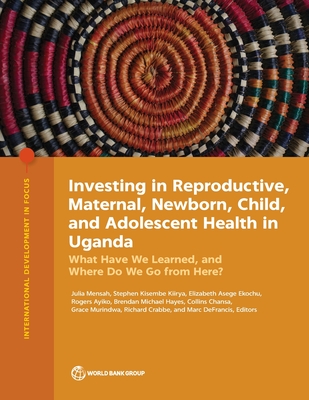Investing in Reproductive, Maternal, Newborn, Child, and Adolescent Health in Uganda: What Have We Learned, and Where Do We Go from Here?

Investing in Reproductive, Maternal, Newborn, Child, and Adolescent Health in Uganda: What Have We Learned, and Where Do We Go from Here?
In Uganda, conditions in reproductive, maternal, newborn, child, and adolescent health (RMNCAH) remain the primary drivers of morbidity and mortality, accounting for 60 percent of years of life lost. The high burden of these conditions can be attributed to a poor quality of care resulting from inadequate financial, human, and material resources compounded by weak multisectoral coordination. Moreover, the country's high population growth rate and a young population imply that RMNCAH service delivery will continue to dominate health sector reforms--even with the increasing prevalence of noncommunicable and infectious diseases. Over the past two decades, Uganda has foc
PRP: 380.27 Lei
Acesta este Prețul Recomandat de Producător. Prețul de vânzare al produsului este afișat mai jos.
342.24Lei
342.24Lei
380.27 LeiIndisponibil
Descrierea produsului
In Uganda, conditions in reproductive, maternal, newborn, child, and adolescent health (RMNCAH) remain the primary drivers of morbidity and mortality, accounting for 60 percent of years of life lost. The high burden of these conditions can be attributed to a poor quality of care resulting from inadequate financial, human, and material resources compounded by weak multisectoral coordination. Moreover, the country's high population growth rate and a young population imply that RMNCAH service delivery will continue to dominate health sector reforms--even with the increasing prevalence of noncommunicable and infectious diseases. Over the past two decades, Uganda has foc
Detaliile produsului













